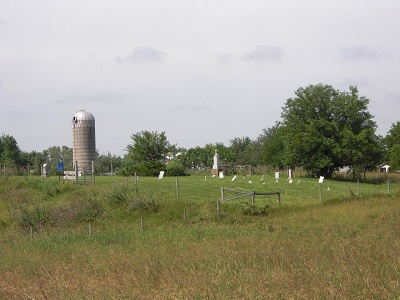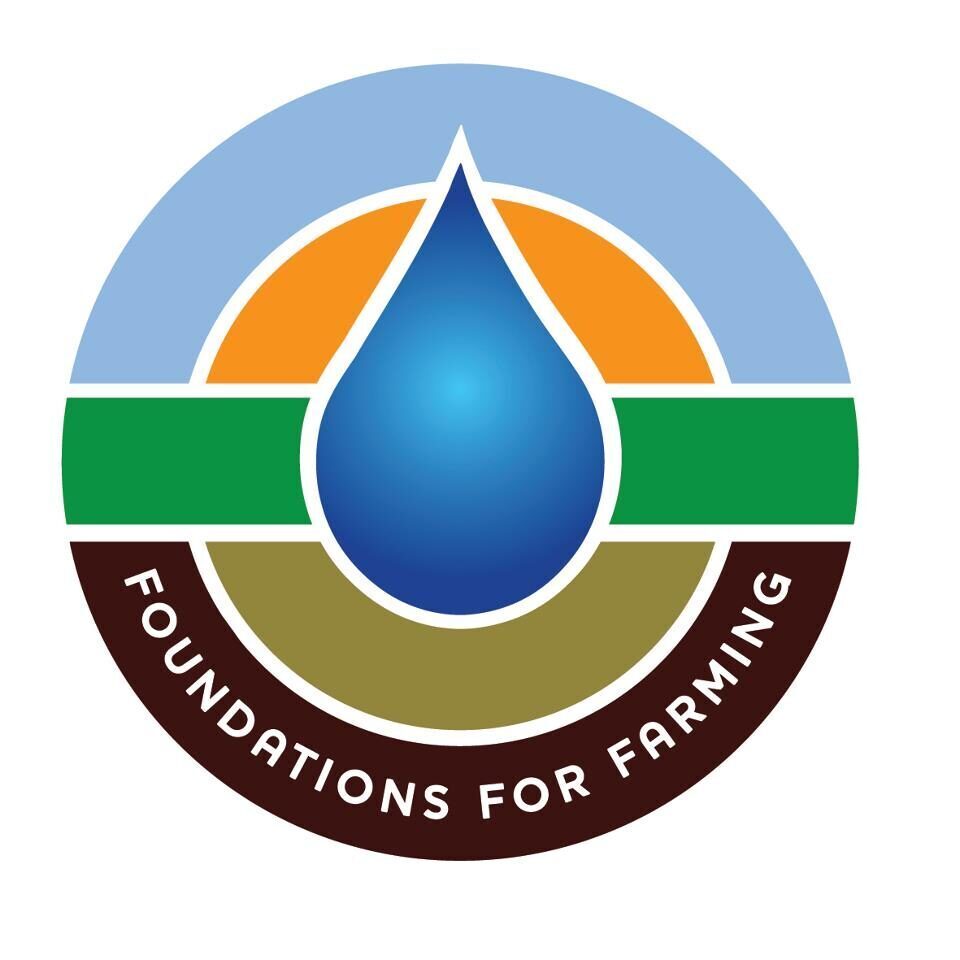
The blessing of the LORD brings wealth, and he adds no trouble to it. Proverbs 10:22
I have heard some depressing stories and read some saddening statistics about the state of the modern farmer, but I was shocked by an excerpt I read from a new book called The Good Food Revolution, by urban farmer Will Allen. I quote it as follows:
“In 1890, researchers for the U.S. Census Bureau ranked professions that had the highest rate of suicide. Tailors, accountants, bookkeepers, clerks, and copyists suffered the most. At the bottom of the list was a career least likely to lead to self-harm: farming. Today, the suicide rate for American farmers is double the national average for everyone else.”
Double the national average suicide rate! Many people talk about the dangers of farming because of heavy machinery and chemicals, but rarely do you hear that farming can be dangerous for your emotional health. Why is this so? What changed to make farmers go from the least likely to even consider suicide, to one of the highest? The article goes on to explain:
“Several recent studies, including a report by the USDA, have attempted to understand why many farmers are struggling emotionally. Some farmers who are asked about the high rates of suicide speak of a sense of loss: the loss of community, the loss of income, and not least, the loss of independence. Many rural farmers say that they are increasingly paid less for more work, and they owe more today for their seeds, fertilizers, equipment, and pesticides. They work one or two jobs outside of their farm in order to stay on their land. They feel ashamed that they cannot be self-sufficient in the way they believe their ancestors were. Instead of growing many crops, they plant hundreds of acres of corn or soybeans. They spray their fields with fertilizer and work off the farm while the corn grows. At the end of the season, the crop is harvested with a large combine.
This is an agriculture controlled by large machines. The land and the people on it are only units of production. The farmer may be compelled to grow on a scale that is uncomfortably large to him. He may borrow money for equipment he can’t afford, and he may never meet the people (or the industrial animals) who eat what he produces.”
I grieve for the American farmer. He has sought to do the best he can at producing food for people, but he has become a slave because he has failed to look to God for guidance in the way he farms. It is tempting for all of us to listen to the world’s advice when they promise a glittering picture of success and happiness. However, true wisdom is found in the fear of the Lord, and when we stray from the law of God, we will reap the consequences. I believe some of the troubles that American farmers face are because of the following reasons:
1. American farms have become factories, instead of homes.
When God planted the Garden of Eden, it was a beautiful, fruitful home. It was a place where relationships were cultivated as well as plants. The first farm consisted of a family working in a garden together cultivating it for the glory of God. It was also where man walked with God. Today many farms have become sterile factories void of any meaningful relationships. Farms used to be busy places, bustling with life and people. However, if you visit most American farms today, they are often lonely places where few people are seen amid the vast oceans of grain. Often the animals are even hidden away in their large confinement houses. These farms are very efficient, but they lack the joy and satisfaction that come from the relationships God intended to take place on them. The happy homestead has become the stressful factory farm.
2. American farming models are debt-based.
In Proverbs 22:7 we read, “The rich rule over the poor, and the borrower is servant to the lender.” Because of the scale of today’s factory farms, their production models are inherently debt-based. As we saw in the article quoted previously, farmers borrow money for equipment, seeds, fertilizer, and pesticides. This takes away their independence and makes them a slave, which should be a very undesireable place to be. But farmers line up to sign up every year. In Dueteronomy 28 one of the blessings for Israel’s obedience was that they would lend to many, but would borrow from none. It is apparent that the majority of American farms are not enjoying the blessing of the Lord.
3. American farmers look to the government for success, instead of God.
The American farmer probably likes to view himself as self-reliant, but when something goes wrong or he needs help he tends to run to the government for advice or a handout. However, the government doesn’t acknowledge God or his Word, and their advice and assistance has done more harm than good. If American farmers want to receive the blessing of the Lord, then they need to begin looking to Him for wisdom and power to make them successful. They need to seek first His Kingdom by viewing their farms as part of a life of worship in which they are ruling over God’s creation and ministering to others. God is in control, and farmers need to recognize that and stop worrying. If they don’t, then the huge amount of uncertainty and risk involved with farming will lead to depression and suicide, just like we see today.
If you know any farmers, especially those who may be exposed to the stresses of God-less farming, please take opportunities the Lord gives you to encourage them to trust the Lord and find ways they can be more obedient to him in the way they farm. It is not going to happen overnight, but I pray that the Lord will restore to this country and its farmers the joy and blessing that can only by found though following the real joy-giver, Jesus Christ.



Shocking to find out that the suicide rate is so high here. After seeing what has happened in India I guess we should have figured as much. So tragic for anyone but farmers are some great people. What you are saying about modern farning is true and I appreciate so much your observations and input in changing this for the better. Keep them coming.
I agree 100 percent with you brother. Farming today has become nothing but people wanting to become rich and the government wanting them to keep running back for help. Farming should be God, family and community centered. My family and I are in the process of saving money for our future debt free farm. It is very exciting to watch God open doors for us. I’m also encouraged to see young men like yourself, serving the Lord in their farming. May God continue to bless you and your family.
Thanks for the post, Noah. I’ve been wanting to get this book. I’ve heard often that another farmer in India kills himself every half hour and I’ve wondered about the state of US farmers.
Love your blog! Would like to sign up to receive it whenever you post but couldn’t find a place to do that. Help!
Julie,
Thanks for the encouragement! I just added a ‘meta’ section on the sidebar of my blog where there are RSS links to sign up for posts or comments.
Noah
I sense there are two erroneous ideas about farming. One is the factory-farm, efficiency-and-the-bottom-line-are-everything paradigm. The other is the hyper-romanticized version, that glosses over the hard work and sweat equity that is and always has been a part of the cultivation of the soil.
A big part of the problem it seems to me is that, while we should all seek for profit, the best return on our investment in resources, be they time, money, or labor, making the quick buck should have no place in our thinking, regardless of our vocation. Do we expect to grow filthy rich farming, somehow hitting some kind of paydirt, taking up residence at Tara (or the modern McMansion version)?
In the last several years, I’ve taken up what my grandaddy did for years, beekeeping. From my modest (and often clumsy) venture into apiculture, I see that one has the choice of using the fast, short-term solution, say, in fighting pests, or the long-term choice of taking some losses, but slowly over time selecting bees that are stronger, adapted to the locality, to its flora and the pests that are ever part of the environment.
It’s not always easy, and it takes time. But any kind of culture, be it agri, api, horti, etc. requires time, and an eye for the long-term good. Americans – farmers included – I suspect have been so used to immediate results and gratification, easy money printed out of thin air, etc. that what you propose will take a great deal of time and, frankly, pain.
May God grant us patience, endurance, and faithfulness as we seek to do His will in this and all things.
Hi Noah,
God bless you, brother! I am thrilled to have found this website and read your blog. I am a fifth generation farmer….or, to be more exact, my father was a fourth generation farmer and I helped him out in what I could until he quite farming to start the greenhouse business. My heart’s desire is to get back to the dirt and incorporate community ministry into it somehow. I found your website today—the day after I received your book in the mail that I ordered from Amazon.com. Funny thing is, I didn’t know you had a website nor was I looking for it. Hmmm, God’s doing something here, that’s for sure. Anyway, I want to say that I enjoyed your blog post and look forward to reading more. By the way, have you heard of the “Back to Eden Film”? I think it would bless you greatly if you haven’t—you can find it at backtoedenfilm.com.
Your brother in Christ and future Christian Farmer Hopeful,
ANDY
Hello:
I arrived at your site through the link to your recent post – the “dangers” one, which was well-written and much needed in our time. It made my heart sink, though, to come back a few and read this one, especially points 1 and 3. My brother and father farm full-time together, and my brother owns and operates a farm market, also, focused on strawberries, raspberries and pumpkins. When I was growing up, we also milked between 60-70 Holsteins, but then he got out of that. They are the conventional “slaves”, working in their “factory” of whom you speak, except no generalization could be further from the truth. Their families and the roots and relationships in their community are deep and God-honoring. Their hope does not rest in the government or the success of their yearly crops (primarily corn and soybeans, by the way!). I live about an hour away now, in a community where people do not know that I grew up on a farm, and have many new friends who are organic and/or homesteading advocates. I applaud their research into how food is grown and their willingness to work. However, it befuddles me why they and you, in this article, feel the need to tear down other men and women who have been pouring themselves out for their entire lives on farms.
There may be evidence of a link between organophosphates and depression/suicide:
http://www.suicidefindinghope.com/content/pesticides_and_depression
In the meantime, pray for our farmers.